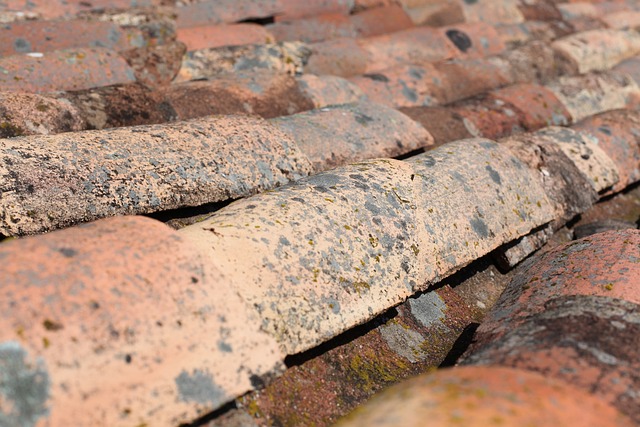Denver roofers face unique high-altitude risks due to the city's mile-high elevation, which can lead to altitude sickness with symptoms like headaches and fatigue. Acclimatization is key for these workers to safely perform their duties, as the thinner air at high altitudes can impair job performance and safety. The unpredictable Denver weather, with its rapid temperature changes and windy conditions, further increases fall risks and exposure to cold-related injuries like hypothermia and frostbite. To manage these challenges, Denver roofers must be equipped with comprehensive safety training, supplemental oxygen, and personal protective equipment (PPE) tailored to altitude-specific hazards. This includes fall arrest systems, eye and face protection, and high-grip gloves. Employers are responsible for implementing regular health monitoring, providing acclimatization periods, and developing safety plans that address the specific needs of Denver roofers working at elevated heights. The integration of these safety measures is crucial for maintaining the health and productivity of these professionals in their demanding work environments.
High-altitude roofing work presents unique challenges that demand stringent safety protocols. This comprehensive article delves into the critical measures Denver Roofers must undertake to ensure their well-being at elevated heights. From the necessity of robust personal protective equipment (PPE) to the importance of altitude acclimatization, we explore a multitude of essential safety practices tailored for Denver’s high-altitude environments. Our discussion encompasses comprehensive training, risk assessment strategies, and the integration of technology to enhance worker protection. We also examine the collaboration between roofing professionals and occupational health experts, legal compliance with OSHA regulations, and the impact of weather conditions on safety. Through case studies and insights from Denver Roofer experts, this article aims to underscore the importance of continuous improvement in high-altitude work safety.
- Understanding the Risks of High-Altitude Work for Denver Roofers
- The Importance of Personal Protective Equipment (PPE) at Elevated Heights
Understanding the Risks of High-Altitude Work for Denver Roofers

High-altitude work presents unique and significant risks for professionals, including Denver roofers. These individuals must navigate the challenges posed by thinner air at elevations, which can lead to a condition known as high-altitude sickness. This condition is characterized by symptoms such as headaches, nausea, dizziness, and fatigue, which can severely impact performance and safety on the job. Denver roofers, in particular, are susceptible to these risks due to the city’s mile-high elevation, where the air density is reduced compared to lower altitudes. It is imperative that these workers undergo proper acclimatization before engaging in high-altitude tasks to ensure their bodies have time to adjust and mitigate the risk of illness.
Furthermore, the physical demands of roofing at elevation are compounded by the potential for extreme weather changes. Denver’s climate can shift rapidly from sunny and warm to cold and windy, creating hazardous conditions that can lead to falls, hypothermia, or frostbite. Denver roofers must be equipped with the appropriate safety gear, such as harnesses, fall arrest systems, and weather-appropriate clothing. Employers should provide comprehensive training on altitude-related risks, personal protective equipment (PPE) use, and emergency response protocols to ensure that Denver roofers can perform their high-altitude tasks safely and effectively. Regular health monitoring and acclimatization breaks are also crucial components of a safety plan for these workers. Understanding and addressing the specific challenges of working at high altitudes is essential for maintaining the well-being and productivity of Denver roofers.
The Importance of Personal Protective Equipment (PPE) at Elevated Heights

When working at elevated heights, such as the tasks performed by a Denver roofer, personal protective equipment (PPE) is indispensable for safeguarding workers against the unique risks associated with high-altitude environments. The thinner atmosphere at these heights means that oxygen levels are lower, necessitating supplemental oxygen systems to prevent altitude sickness and ensure sustained mental and physical performance. A Denver roofer must also be equipped with fall arrest systems, including harnesses, lanyards, and anchor points, to mitigate the risk of falls, which remain one of the most common dangers in these settings. Additionally, specialized eye and face protection is required due to the potential for loose materials and extreme weather conditions at high altitudes. High-quality gloves are essential to maintain a firm grip on tools and materials, which can become slippery or difficult to handle at such heights. In the event of an accident or emergency, quick-access personal first aid kits are critical for immediate response and treatment until professional medical help arrives. The Denver climate and altitude add layers of complexity to safety protocols; thus, a comprehensive PPE strategy is not just a regulatory requirement but a vital lifeline for Denver roofers working at heights. It is the responsibility of both employers and individual workers to adhere strictly to these safety measures to prevent accidents and ensure a safe working environment.
When engaging in high-altitude work, such as that performed by Denver roofers, adherence to safety protocols is paramount. The risks associated with these tasks are significant and necessitate the correct use of Personal Protective Equipment (PPE). This article has underscored the importance of safety measures to prevent accidents and ensure the well-being of those who navigate the steep slopes and harsh conditions of Denver’s rooftops. By prioritizing PPE and understanding the unique challenges of high-altitude work, Denver roofers can mitigate risks and perform their duties effectively and securely.
